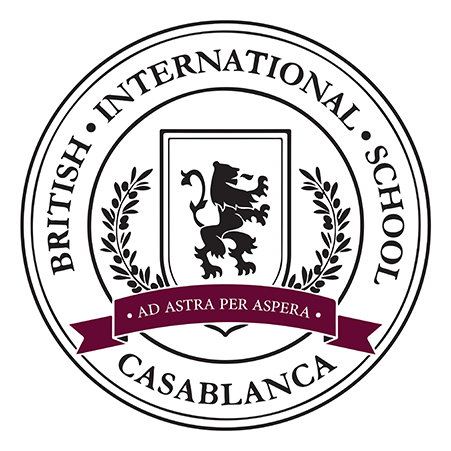- Phone: (+212) 520 500 200
- Email : [email protected]
EYFS
Literacy and Mathematics
The Early Years program at The British International School Casablanca (BISC) is designed to support children’s development through innovative practices and outdoor education, fostering exploration and inquiry.
Literacy
Reading: children read and understand simple sentences. They use phonic knowledge to decode regular words and read them aloud accurately. They also read some common irregular words. They demonstrate understanding when talking with others about what they have read.
Writing: children use their phonic knowledge to write words in ways which match their spoken sounds. They also write some irregular common words. They write simple sentences which can be read by themselves and others. Some words are spelt correctly and others are phonetically plausible.
Mathematics
Numbers: children count reliably with numbers from 1 to 20, place them in order and say which number is one more or one less than a given number. Using quantities and objects, they add and subtract two single-digit numbers and count on or back to find the answer. They solve problems, including doubling, halving and sharing.
Shape, space and measures: children use everyday language to talk about size, weight, capacity, position, distance, time and money to compare quantities and objects and to solve problems. They recognise, create and describe patterns. They explore characteristics of everyday objects and shapes and use mathematical language to describe them.
Understanding the world
People and communities: children talk about past and present events in their own lives and in the lives of family members. They know that other children don’t always enjoy the same things, and are sensitive to this. They know about similarities and differences between themselves and others, and among families, communities and traditions.
The world: children know about similarities and differences in relation to places, objects, materials and living things. They talk about the features of their own immediate environment and how environments might vary from one another. They make observations of animals and plants and explain why some things occur and talk about changes.
Technology: children recognise that a range of technology is used in places such as homes and schools. They select and use technology for purposes.
Expressive arts and design
Exploring and using media and materials: children sing songs, make music and dance, and experiment with ways of changing them. They safely use and explore a variety of materials, tools and techniques, experimenting with colour, design, texture, form and function.
Being imaginative: children use what they have learnt about media and materials in original ways, thinking about uses and purposes. They represent their own ideas, thoughts and feelings through design and technology, art, music, dance, role-play and stories.
Discover more about our enriching approach to early learning.
Our approach nurtures curiosity, creativity, and a love for learning, fostering development across key areas like communication, physical growth, and emotional well-being. With a focus on hands-on experiences and exploration, every child is supported to thrive and grow in a stimulating environment.
